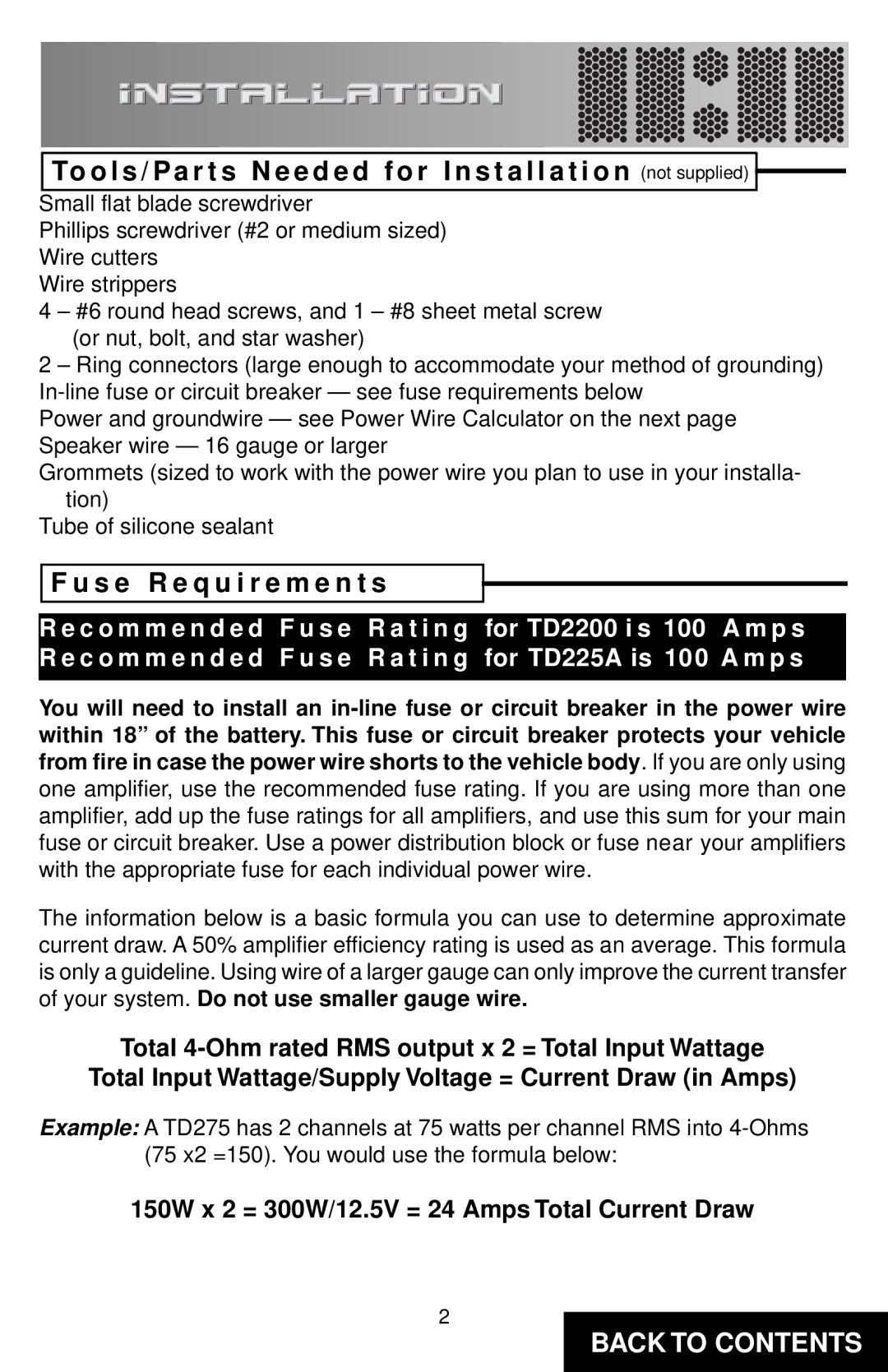
To o l s / P a r t s N e e d e d f o r I n s t a l l a t i o n (not supplied) ![]()
Small flat blade screwdriver
Phillips screwdriver (#2 or medium sized) Wire cutters
Wire strippers
4 – #6 round head screws, and 1 – #8 sheet metal screw (or nut, bolt, and star washer)
2 – Ring connectors (large enough to accommodate your method of grounding)
Power and groundwire — see Power Wire Calculator on the next page Speaker wire — 16 gauge or larger
Grommets (sized to work with the power wire you plan to use in your installa- tion)
Tube of silicone sealant
F u s e R e q u i r e m e n t s
R e c o m m e n d e d | F u s e | R a t i n g | for TD2200 i s 100 A m p s |
R e c o m m e n d e d | F u s e | R a t i n g | for TD225A is 100 A m p s |
|
|
|
|
You will need to install an
The information below is a basic formula you can use to determine approximate current draw. A 50% amplifier efficiency rating is used as an average. This formula is only a guideline. Using wire of a larger gauge can only improve the current transfer of your system. Do not use smaller gauge wire.
Total
Total Input Wattage/Supply Voltage = Current Draw (in Amps)
Example: A TD275 has 2 channels at 75 watts per channel RMS into
(75 x2 =150). You would use the formula below:
150W x 2 = 300W/12.5V = 24 Amps Total Current Draw
2
